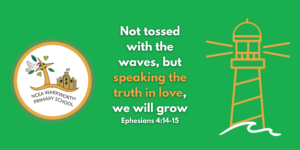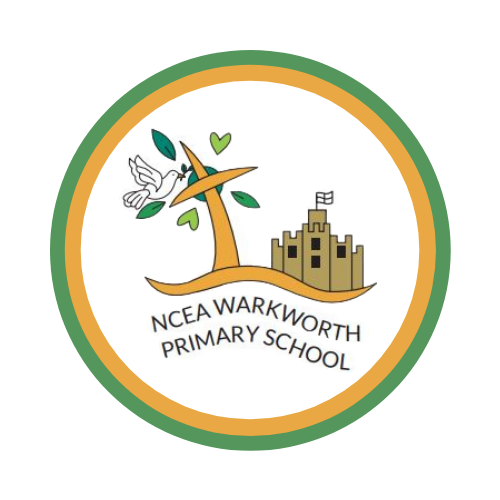
Curriculum Intent
Everything within the school, including our curriculum, is built around our collective vision. We believe it is our responsibility for all children to experience life in all its fullness, as promised by Jesus, and our carefully designed curriculum is part of how we live out this mission, being equipped for the journey ahead both spiritually and academically. We teach rigorous lessons with high expectations within a loving, nurturing environment, enabling all to flourish.
We value the uniqueness and God-given potential of all children. We believe as a school that it is part of our social and Christian mission that all children are exposed to a broad, balanced and challenging body of deep knowledge. This is especially the case for vulnerable children, who are equally entitled to acquire and celebrate the knowledge and cultural capital that an ambitious curriculum can provide. This comes from our strong belief in inclusivity, so they can fulfil their God-given talent.
At the heart of our curriculum is the intent to:
- Embody our values through every interaction, understanding that teaching goes beyond lessons to everything we do: specifically, how our children learn from the way they are nurtured, treated and expected to behave.
- Develop children’s thirst for learning and wish to improve the world, serving the common good beyond their time at NCEA Warkworth Primary School. This means being prepared not just for the next step within their educational journey but courageously advocating for a kinder world throughout the rest of their lives.
- Construct a sequential, academically rigorous curriculum that cumulatively builds a deep body of knowledge, increasing not just what children know now but which betters their life chances and prepares them for an unmapped future.
- Provide wider opportunities for all families that they may not always have access to.
-
Understand that our curriculum is consistently evolving according to the needs of our school community.
Our practice is informed by the latest educational research. This suggests that children learn best through explicit instruction (DfE, Reading Framework 2021; EEF, SEND in Mainstream Schools, 2021), understanding that memory is how children make connections both within and between subjects, as well as real life.
We have high aspirations for all children. Teachers adapt how they deliver the curriculum, with very limited exceptions, rather than what is taught, ensuring the significant majority of children access the same broad and balanced curriculum. At times, we may have to prioritise this core knowledge but its delivery should be careful and deliberate to ensure minimal impact on children’s exposure to as deep and wide a curriculum as possible.
We are constantly reshaping elements of each subject’s curriculum to meet the needs of the pupils and to keep up with current educational research. Reading is a key skill across the curriculum and children are given the opportunity to practise and apply a range of reading skills across the entire curriculum.
Our curriculum decisions come both from agreed shared principles but also considering the community that we serve. We regularly consider the contextual information of cohorts when renewing our school’s curriculum intent and reviewing its implementation and impact. In addition, we recognise that the school serves more than just our current pupils but the wider community, meaning that the curriculum goes beyond the school building, including ensuring strong relationships with families.
Our lesson design
Quality-first teaching is the most important factor in ensuring impact for all learners. Although lessons in each subject will look different from one another, every lesson will contain opportunities for children to: receive feedback about what they’re doing well and how to improve; recap prior learning; practise important vocabulary for the topic; and apply their knowledge and understanding. This lesson structure is supported by regular, research-based CPD for staff.
Reducing cognitive load
Deliberate decisions are made across the school to reduce cognitive load, such as reduction of visual noise within classrooms (particularly crucial for children with sensory needs) to having tasks be focused on the precise learning intentions e.g. keeping resources, like worksheets, simple. For children to make complex connections and access the challenging curriculum as well as possible, staff seek to reduce cognitive load so that children’s attention can be focused on the most crucial aspects as presented by the teacher.
Keep up, not catch up
We take a keep up, not catch up approach for all children, but particularly bearing in mind those who are at risk of falling behind, who may be disadvantaged or may have SEND. This is based on the principles of asking more (of certain children in the class, both in terms of questions during input and of their efforts in general), giving more (support where necessary), and getting more (out of the children, understanding that children with SEND may need to work harder than their peers in order to reduce and eventually eliminate the attainment gap).
Schemes of Work
Read Write Inc
In EYFS and KS1 we use Read Write Inc. (RWInc). This is a consistent, rigorous and dynamic literacy programme that uses synthetic phonics to help children quickly learn to blend letter sounds together, following a fun and effective programme.
As well as reading, it includes spelling, writing grammatically accurate sentences, writing for different purposes and builds up an adventurous vocabulary. There are also many opportunities to build up skills in speaking and listening. Children get a great sense of achievement and develop confidence in the fast moving yet very supportive sessions.
Accelerated Reader
Accelerated Reader is a computer programme that helps teachers to manage and monitor children’s independent reading practice while encouraging a self-guided love of reading. Used by our pupils in years 3-6, children pick a book that interests them at their reading level and read through it at their own pace. When finished, pupils take a short quiz on the computer. (Passing the quiz is an indication that they understood what was read). Accelerated Reader then provides feedback based on the quiz results, which the teacher uses to help pupils to set goals and direct their ongoing reading practice.
White Rose Maths (WRM)
From Reception to Year 6 we use the mixed-aged planning from White Rose Maths to help pupils of all ages to develop a deep understanding of maths as they progress through the curriculum. Click here to view the progression document that we follow in school.
Language Angels
In KS2 (Years 3- 6) we use Language Angels to teach French on a weekly basis. Units vary from early language units (which are ideal for children with little or no previous knowledge of foreign languages) to intermediate units (ideal for pupils building up their foreign language expertise) through to progressive units (which are great for extending and challenging pupils with a sound understanding of the basics of the language they are learning).
PSHE (Personal, Social, Health and Emotional) Development
During key stages 1 and 2, PSHE education offers both explicit and implicit learning opportunities and experiences which reflect pupils’ increasing independence and physical and social awareness, as they move through the primary phase. It builds on the skills that pupils started to acquire during the Early Years Foundation stage (EYFS) to develop effective relationships, assume greater personal responsibility and manage personal safety, including online. PSHE education helps pupils to manage the physical and emotional changes at puberty, introduces them to a wider world and enables them to make an active contribution to their communities.
Relationships, Sex Education (RSE)
From September 2020, all primary schools are required to teach relationships and health education in school. All primary school have also been asked to consult on sex education. During November 2019 we consulted with stakeholders and met with parents, governors, pupils and staff. The result of the consultation was that we will teach sex education in year 5 and 6. From February 2020, we will teach sex education; however, this is not compulsory and parents can opt out of this. Please see our policy which includes a progression map of objectives covered in each year group.
Music Development Plan
View our Music Development Plan.
Would you like to know more?
If you have any specific questions about your child’s learning in a particular subject area, contact the school office on 01665 711369 and a member of staff will be happy to assist you.

